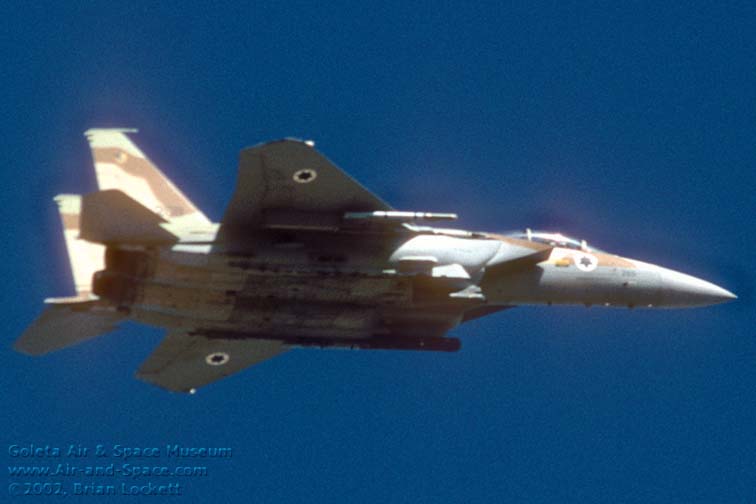Re: War in The Middle East
WND Exclusive FROM WND'S JERUSALEM BUREAU
'Syria will form own Hezbollah'
Israeli intel chief says Damascus seeking to copy Lebanese group
Posted: September 11, 2006
1:00 a.m. Eastern
By Aaron Klein
© 2006 WorldNetDaily.com
JERUSALEM – Syria is considering forming its own Hezbollah-like guerrilla organization to fight Israel in hopes of "liberating" the Golan Heights, the chief of intelligence for the Israeli Defense Forces announced yesterday.
Speaking at a government meeting, the IDF's Major General Amos Yadlin said Syria is in the initial stages of developing the concept for the copycat Hezbollah group, which he said would launch attacks aimed at pressuring Israel into vacating the Golan Heights, strategic mountainous territory captured by the xxxish state after Syria used the terrain to attack Israel in 1967 and again in 1973. The Heights borders Israel, Syria and Lebanon and is claimed by Damascus.
Yadlin's announcement comes one month after WND broke the story that following its estimation Hezbollah was victorious during military confrontations with the xxxish state, Syria is in the process of forming what an official from Syrian President Bashar Assad's Baath Party called the Front for the Liberation of the Golan Heights, a new "resistance" group that models itself after Hezbollah.
The official told WND the Front will attempt attacks to force Israel from the Golan.
Military officials here have long maintained returning the Golan Heights to Syria would grant Damascus the ability to mount an effective ground invasion of the xxxish state. The territory looks down on major Israeli and Syrian population centers.
The Baath party official told WND Syria learned from Hezbollah's military campaign against Israel the past month that "fighting" is more effective than peace negotiations with regard to gaining territory.
Hezbollah claims its goal is to liberate the Shebaa Farms, a small, 125-square-mile bloc situated between Syria, Lebanon and Israel. The cease-fire resolution accepted by Israel to end its military campaign in Lebanon calls for negotiations leading to Israel's relinquishing of the Shebaa Farms.
The Baath official told WND the Front for the Liberation of the Golan Heights was formed in June and that the group currently consists of Syrian volunteers, many from the Syrian border with Turkey and from Palestinian refugee camps near Damascus. He said Syria held registration for volunteers to join the Front in June.
One week after the WND article detailing the claimed group was published, state-run Al-Alam Iranian television featured an interview with a man who identified himself as the leader of the new Front for the Liberation of the Golan Heights.
The man, whose features were blocked out, said his new group consists of "hundreds" of fighters who are training for guerrilla-like raids against Israeli positions in and near the Golan. He claimed the Front has opened several training camps inside Syria.
WND Exclusive FROM WND'S JERUSALEM BUREAU
'Syria will form own Hezbollah'
Israeli intel chief says Damascus seeking to copy Lebanese group
Posted: September 11, 2006
1:00 a.m. Eastern
By Aaron Klein
© 2006 WorldNetDaily.com
JERUSALEM – Syria is considering forming its own Hezbollah-like guerrilla organization to fight Israel in hopes of "liberating" the Golan Heights, the chief of intelligence for the Israeli Defense Forces announced yesterday.
Speaking at a government meeting, the IDF's Major General Amos Yadlin said Syria is in the initial stages of developing the concept for the copycat Hezbollah group, which he said would launch attacks aimed at pressuring Israel into vacating the Golan Heights, strategic mountainous territory captured by the xxxish state after Syria used the terrain to attack Israel in 1967 and again in 1973. The Heights borders Israel, Syria and Lebanon and is claimed by Damascus.
Yadlin's announcement comes one month after WND broke the story that following its estimation Hezbollah was victorious during military confrontations with the xxxish state, Syria is in the process of forming what an official from Syrian President Bashar Assad's Baath Party called the Front for the Liberation of the Golan Heights, a new "resistance" group that models itself after Hezbollah.
The official told WND the Front will attempt attacks to force Israel from the Golan.
Military officials here have long maintained returning the Golan Heights to Syria would grant Damascus the ability to mount an effective ground invasion of the xxxish state. The territory looks down on major Israeli and Syrian population centers.
The Baath party official told WND Syria learned from Hezbollah's military campaign against Israel the past month that "fighting" is more effective than peace negotiations with regard to gaining territory.
Hezbollah claims its goal is to liberate the Shebaa Farms, a small, 125-square-mile bloc situated between Syria, Lebanon and Israel. The cease-fire resolution accepted by Israel to end its military campaign in Lebanon calls for negotiations leading to Israel's relinquishing of the Shebaa Farms.
The Baath official told WND the Front for the Liberation of the Golan Heights was formed in June and that the group currently consists of Syrian volunteers, many from the Syrian border with Turkey and from Palestinian refugee camps near Damascus. He said Syria held registration for volunteers to join the Front in June.
One week after the WND article detailing the claimed group was published, state-run Al-Alam Iranian television featured an interview with a man who identified himself as the leader of the new Front for the Liberation of the Golan Heights.
The man, whose features were blocked out, said his new group consists of "hundreds" of fighters who are training for guerrilla-like raids against Israeli positions in and near the Golan. He claimed the Front has opened several training camps inside Syria.















Comment